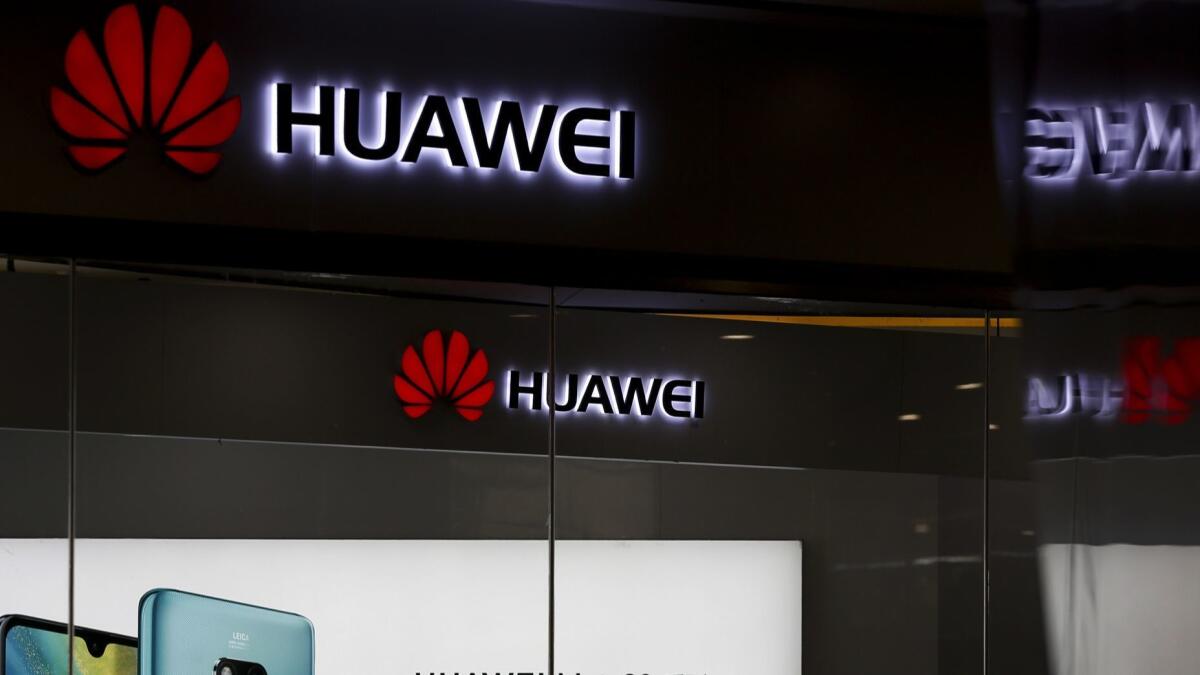Huawei asks court to deem U.S. security law unconstitutional

- Share via
Reporting from SHENZHEN, China — Fighting to maintain its access to major markets for next-generation communications, Chinese tech giant Huawei is challenging the constitutionality of a U.S. law that limits its sales of telecom equipment.
Huawei’s chief legal officer Song Liuping said at a news briefing Wednesday that Huawei filed a motion for summary judgment asking the court in Plano, Texas, to rule on whether a U.S. military spending provision that bars the government and its contractors from using Huawei equipment is constitutional.
Huawei is the biggest global maker of network equipment and enjoys a lead in 5G, or fifth-generation, technology. It also is the No. 2 maker of smartphones. The Trump administration claims the company could use its equipment to spy on behalf of the Chinese government and is thus a threat to international cybersecurity.
“This decision threatens to harm our customers in over 170 countries, including more than 3 billion customers who use Huawei products and services around the world,” Song said.
Huawei, whose U.S. headquarters is in Plano, launched a lawsuit in March against the U.S. national defense law, calling the provision a “bill of attainder” that selectively punishes Huawei and violates its due process by presuming its guilt without a fair trial. The summary judgment motion seeks to accelerate the legal process to give U.S. customers access to Huawei equipment sooner, according to a Wednesday statement from Huawei.
Song said the “state-sanctioned campaign” against the company will not improve cybersecurity.
“Politicians in the U.S. are using the strength of an entire nation to come after a private company,” he said. “This is not normal.”
Apart from the defense law provision, the U.S. Commerce Department recently placed Huawei on its “Entity List,” effectively barring U.S. firms from selling their technology to it and other Chinese firms without government approval. Huawei relies heavily on U.S. components, including computer chips, and about one-third of its suppliers are American.
The moves against Huawei are part of a broader trade war between the world’s two largest economies that has both sides imposing billions of dollars of punitive tariffs against each other’s products.
The dispute centers on China’s huge, long-standing trade surplus with the U.S. and complaints that Beijing and Chinese companies use unfair tactics to acquire advanced foreign technologies.
More to Read
Inside the business of entertainment
The Wide Shot brings you news, analysis and insights on everything from streaming wars to production — and what it all means for the future.
You may occasionally receive promotional content from the Los Angeles Times.










